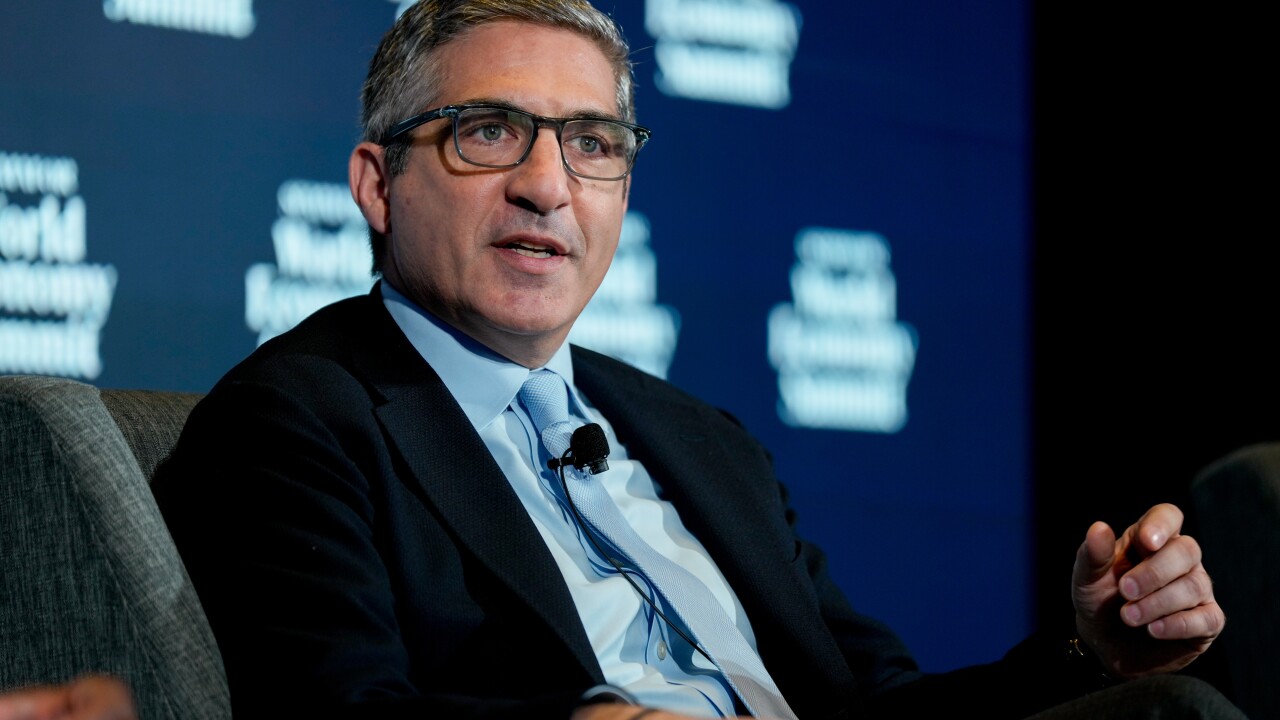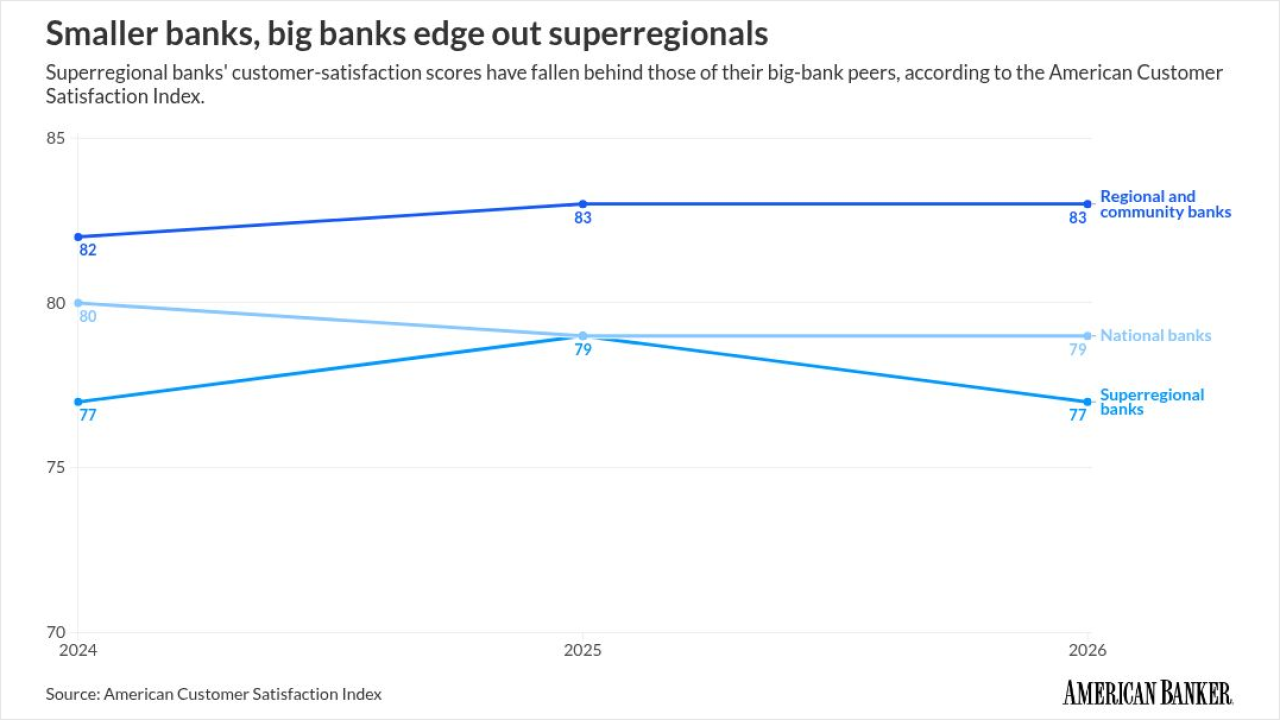Fear of Lawsuits Makes It Harder To Lure Directors
For more than a year, Houston-based Compass Bank wooed David A. Witts to accept a seat on its board of directors.
Mr. Witts, a prominent Dallas banking attorney, was wined and dined. He was even flown to Birmingham, Ala., last year for the PGA Championship at Shoal Creek Country Club.
Flattering though it was, Mr. Witts spurned the offer. He was afraid that he would be sued by the Federal Deposit Insurance Corp. if the institution ever got into trouble.
Although Compass is a well-run and profitable bank, Mr. Witts said he decided, "It's not worth it to subject yourself to being sued by a capricious, out-of-control government agency."
The FDIC's pursuit of directors of failed banks is so aggressive that banks all over the country, even strong ones, are having trouble attracting qualified people to their boards.
Other banks are having a hard time hanging on to the board members they have. So many complaints have been raised that the newly installed FDIC chairman, William Taylor, said he is reexamining the aggressive enforcement posture. He's not promising any changes, however.
Agency Defends Lawsuits
The FDIC's general counsel, Alfred Byrne, insisted in an interview this week that the agency is bringing directors' lawsuits responsibly.
"Our professional-liability lawsuits remain among our most careful and thorough," he said. "I'm satisfied that the FDIC has not in any way gone overboard."
"We only bring suits against directors in half of all bank failures," said FDIC spokesman Alan J. Whitney. "So there is not, by any means, any automatic reaction on the part of the FDIC to sue directors and officers of all failed banks."
Mr. Byrne said he is not at all concerned that the suits make it harder for banks to attract directors. In fact, both the FDIC and the Resolution Trust Corp. are asking Congress to make it easier for them to sue directors.
Degrees of Negligence
Currently, the agencies must prove a director had been "grossly" negligent. They want Congress to reduce that standard to simple negligence.
The FDIC also has a proposal out for comment that would prevent most directors from receiving advances from their banks to cover the expense of defending against suits brought by bank regulators.
And the 1991 banking legislation just approved by Congress gives the FDIC and other regulators the muscle to roll back directors' and officers' perquisites and salaries if the agencies deem them to be excessive. Up to now, only salaries paid to directors of public utilities have been subject to such regulation.
Bankers and industry consultants say changes like these are bound to make a bad situation disastrous. They say the agency lawsuits, numbering in the hundreds, are the equivalent of legal drift nets, indiscriminately trapping the innocent along with the guilty.
"The director is blamed, regardless of whether he is deserving of blame," says David H. Baris, executive director of the American Association of Bank Directors. Mr. Baris contends that the FDIC is suing directors with abandon because it sees them as "deep pockets, a source for replenishing the Bank Insurance Fund."
Ronald R. Glancz, a former FDIC attorney and a partner with Venable, Baetjer, Howard & Civiletti in Washington, said regulators are holding directors to an overly high a standard.
"Should directors have spotted the downturn in the Northeast or Texas when the regulators didn't? I think that is unrealistic," he said.
The problem is particularly intense at banks that are on the ropes. Take the case of Investors Savings Bank, Richmond, which is trying to avoid collapse. Six investors resigned from its board in little more than a year ago because they were fearful of their potential liabilities in the event the bank went under.
"When you have troubles, that's the time when you need the best directors," said Sidney Bostian, chief executive officer of $2 billion-asset Investors, who was hired last February in a last-ditch effort to save the institution.
The FDIC has 105 staff attorneys, working with more than 100 outside law firms, to investigate whether to bring lawsuits against directors at 800 failed banks. The agency currently has 188 cases outstanding against directors.
That number does not include 100 suits against thrift directors and their accountants and lawyers brought by the Resolution Trust Corp. The RTC also is considering legal action against directors of 400 other S&Ls.
Early on, Congress made clear that it expects both agencies to be vigorous in their pursuit of rogue bank managements and boards.
In 1990, the FDIC collected $373 million from its professional-liability cases; in the first six months of this year, the corresponding figure stood at $276 million. The agency has collected $877 million since 1988.
The avalanche of suits has bankers telling horror stories.
"People are fearful of their net worth being wiped out by these promiscuous lawsuits," said Charles Pistor, a defendant in the FDIC's $100 million compliant against 70 former officers and directors of First Republic-Bank, Dallas.
What the Polls Show
"You're held to almost a perfect-man standard," said Stanley Huggins, a principal with Huggins & Associates, a consulting firm with 630 bank clients in 34 states. A survey by Memphis-based Huggins showed 60% of bank chief executives are having trouble attracting new directors this year, up from 49% in 1990.
Korn/Ferry International, a Chicago-based human resources consulting firm, found in a separate study that 63% of banks with $10 billion or more in assets saw at least one director resign in 1990. Resignations by outside directors were more common at financial institutions than at any other type of corporation, Korn/Ferry said.
One reason for the scare among directors is the rising cost of liability insurance -- driven up by the FDIC's actions.
Premiums Skyrocket
Stephen Sills, vice president of underwriting for Aetna Executive Risk Management Associates, Hartford, said premiums on directors' and officers' (D&O) policies are five to 10 times higher than they were just five years ago.
Ken Wollner, a senior manager at CNA Insurance Cos. in Chicago, said costs go up because the FDIC views D&O insurance as a means to recovering losses.
"D&O liability insurance is a type of professional liability insurance; it is not insuring the solvency of an institution," Mr. Wollner said.
Still, he said, "A run-of-the-mill financial institution should have no problem getting good quotes from many different carriers."
Even so, the downside of being a director is making bankers nervous.
Says Tony Payne, president of First National Bank in Council Bluffs, Iowa, "We run a good, sound bank here, but still I know the pressure these folks [his directors] are under. They put their net worth on the line every day. The risk-reward ratio isn't there."





